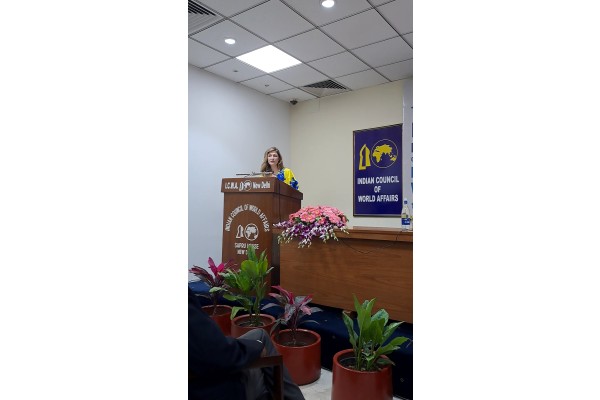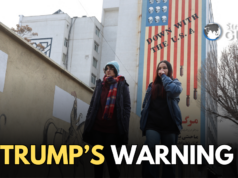NEW DELHI: Is India laying the ground for a shift in its Ukraine policy? Some eyebrows did go up when Ukraine’s deputy foreign minister Emine Dzhaparova, was hosted by the Indian Council of World Affairs, the official think tank of the Ministry of External Affairs (MEA). She also met MoS Meenakshi Lekhi, and Deputy NSA Vikram Misri.
Sanjay Verma, Secretary West, tweeted: “Pleasure to receive Ukrainian Deputy FM. Perspectives shared. Discussed bilateral engagements and cooperation going forward. Wishing her a good trip, her first as DFM but a country she’s familiar with.” (The last was a reference to her links to Satya Sai Baba of Puttaparthi).
Dzhaparova wanted NSA Ajit Doval to visit Kyiv, this would ensure “balance” she said since he had visited Moscow recently. She also shrewdly touched on some points she knew would go down well with her audience. “The Crimea episode has a lesson for India as well, as India also has a difficult neighbourhood with China and Pakistan. Whenever impunity happens and if it is not stopped, it becomes bigger.”
There is some irony in talking ill of a country (Pakistan) that is reportedly shipping container loads of arms, equipment and ammunition to Ukraine. India has refused to do so, preferring to send modest supplies of medicines and equipment.
Calling for a “better and deeper” relationship, Dzhaparova said, “We really want India and Ukraine to be closer. Our relationship was based on the Soviet heritage but today we are emerging with a Ukrainian identity with which we want to start a new relationship with India.”
She also indulged in some name calling, accusing Russia of blackmailing dependent states (like India which is heavily reliant on Russian weapons). She pointed to the energy crisis triggered by Russia’s invasion of her country.
On the face of it, Dzhaparova’s visit was in keeping with India’s stand of talking to all parties. But it’s hard to ignore the undercurrents. What happens if India invites Ukraine’s President Zelensky to the G20 summit in Delhi later this year? It’s something the Ukrainians are pushing for. It will go down well with the block of G7 states that form the lynchpin of the G20.
It won’t go down well in Moscow but some in the Indian establishment have already written Russia off since the Ukraine invasion. It’s proximity to and dependence on China have added to the sense that India needs to redo its sums.
An outreach to Ukraine in the manner mentioned above, could some Indian diplomats argue, help this country build closer ties with the West. Like it or not, that’s where the money and technology come from. It’s also where many Indian techies hope to move at some stage in their lives. Add to that expanding trade and cultural ties.
Diplomats say Delhi is likely to stick to its current position on Ukraine because there’s little incentive to annoy Russia now. India needs to sort out delays in deliveries of key military hardware including the S400 missile defence system. Discounted Russian oil is helping India make profits as it refines and exports it to the West. Dzhaparova will have to wait but watch this space closely.
Traveller, bibliophile and wordsmith with a yen for international relations. A journalist and budding author of short fiction, life is a daily struggle to uncover the latest breaking story while attempting to be Hemingway in the self-same time. Focussed especially on Europe and West Asia, discussing Brexit, the Iran crisis and all matters related is a passion that endures to this day. Believes firmly that life without the written word is a life best not lived. That’s me, Ashwin Ahmad.





